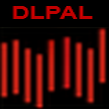New related paper to #21 – Momentum Effect in Commodities and #22 – Term Structure Effect in Commodities
"Having developed the view that the three factors explain the cross-section of commodity returns, the next core question is: What are the economic forces underlying the carry and momentum factors? First, we show that the commodity carry factor is linked to innovations in equity return volatility. During periods of unanticipated high (low) equity volatility, the commodities in backwardation (contango) deliver low (high) returns, which could explain the positive compensation for the carry strategy. We further show that the innovations in equity volatility can price the commodity portfolios sorted on carry. At the same time, we show that innovations in equity volatility cannot price commodity portfolios sorted on momentum. The economic intuition is that the high average returns to carry is compensation for the low payoff of the strategy in periods of high unexpected volatility."
"Second, we demonstrate that innovations in aggregate speculative activity is positively related to the momentum factor, especially the returns of the past winners. We construct this speculative variable using large traders’ positions data from CFTC. Our novel result is that innovations in speculative activity are able to price commodity portfolios sorted on momentum, but not the ones sorted on carry. We further show that innovations in speculative activity is negatively correlated with innovations in equity volatility and is mildly pro cyclical. Overall, our analysis indicates that investors do not like the low returns of momentum strategies during periods of worsening investment opportunity set and accordingly ask for positive remuneration. Importantly, our speculative activity variable is unrelated to measures of liquidity."
"Third, we establish that innovations in commodity volatility, log open interest, hedging pressure, scarcity, log of G7 industrial production, US TED spreads, and G7 inflation cannot price portfolios sorted on neither carry nor momentum. Taken altogether, our results isolate the role of equity return volatility (speculative activity) in explaining thecarry (momentum) factor."
"Continuing with our effort to understand the carry and momentum factors, we perform two additional exercises. First, we show that both carry and momentum perform particularly well during recessions, periods associated with negative returns for both the average commodity factor as well as the equity market. More over, we address whether the commodity factors forecast changes in the investment opportunity set. Our exercises uncover that the average commodity factor predicts GDP growth and equity returns with a positive sign and Treasury bond returns with a negative sign, and the effect is statistically signiï¬cant (based on the Hodrick (1992) 1B covariance estimator). Our predictive regressions also show that increases in the carry and momentum factors are associated with future economic slowdowns, higher bond returns, and lower equity returns. Testifying to the global economic nature of the commodity carry and momentum factors, they also forecast the appreciation of the US dollar against the commodity currencies, extending the analysis of Chen, Rogoff, and Rossi(2010)."
Are you looking for more strategies to read about? Check http://quantpedia.com/Screener
Do you want to see performance of trading systems we described? Check http://quantpedia.com/Chart/Performance
Do you want to know more about us? Check http://quantpedia.com/Home/About
Share onLinkedInTwitterFacebookRefer to a friend
























